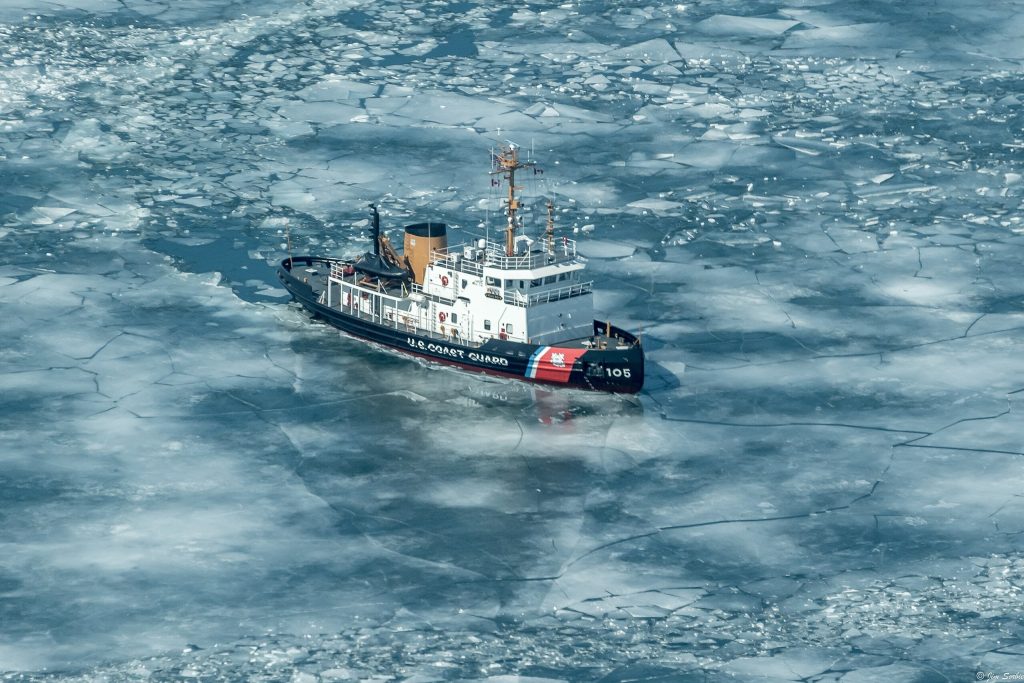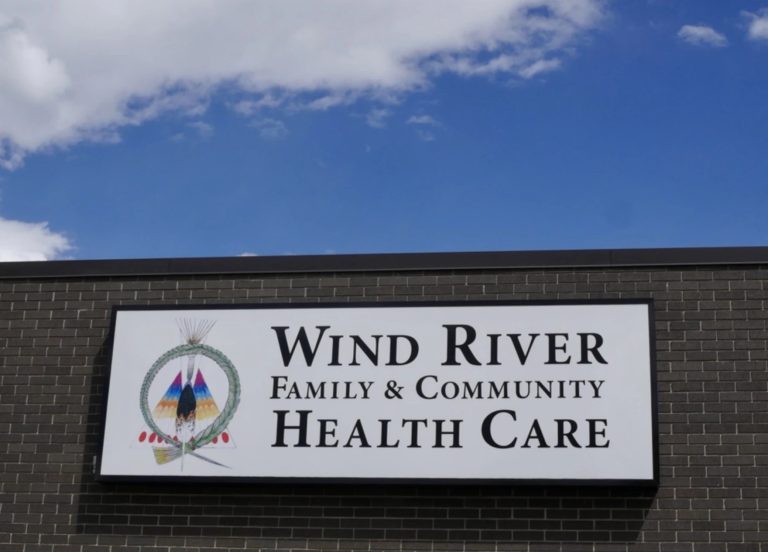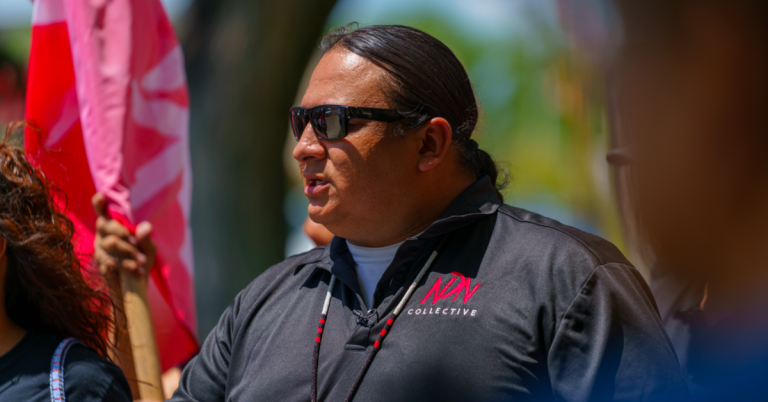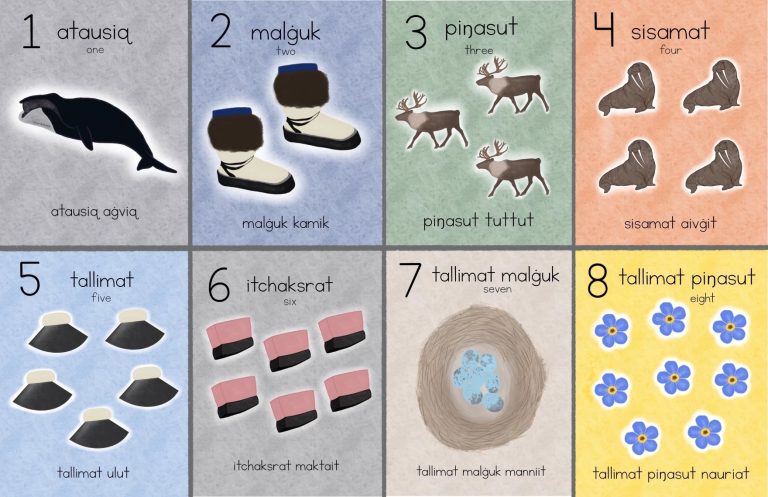Podcast: Play in new window | Download | Embed
Photo: USCGC Neah Bay on frozen Lake Superior in 2021. (Jim Sorbie / Wikimedia)
A resource guide to help small and medium-sized governments in the Great Lakes region adapt to climate change has been published.
Chuck Quirmbach reports that some tribal communities in the area are already trying to reduce problems caused by higher temperatures and additional flooding.
The guide is from the International Joint Commission (IJC), which helps implement the Boundary Waters Treaty of 1909 between the U.S. and Canada.
Liz Kirkwood of the IJC’s Water Quality Board says climate change has brought more severe storms, loss of ice cover, and extreme temperatures to much of North America, including the Great Lakes region.
“In 2024, extreme weather disasters cost the eight Great Lakes more than $13 billion combined. Some of the costliest disasters happened in the last five years.”
While debate continues over how to reduce air pollution that contributes to climate change, the IJC has published a guide aimed at helping small and medium sized governments adapt to the new temperatures and heavier rainfalls.
Charlie Rasmussen of the Great Lakes Indian Fish and Wildlife Commission says his organization welcomes the sharing of best practices, funding ideas, and other strategies. He says the Commission’s eleven Ojibwe member tribes in Wisconsin, Michigan, and Minnesota are already taking steps, sometimes in collaboration with local, state, or federal agencies.
One project, being, ishkode. That’s using prescribed, or controlled, fires on land next to water.
“They help maintain and re-establish native species, species that do the best job at holding the soil and better able to resist some of these severe precipitation events.”
Rasmussen says other tribes are putting in larger roadside culverts to reduce highway damage from flooding, and to help wildlife move.
He says tribes also share traditional ecological knowledge (TEK).
“It encourages building relationships with plants, animals, and water as living beings, rather than just a natural resource that you manage.”
IJC says it recognizes its Climate Adaptation Guide has some gaps, including needing more content from First Nations and island communities.
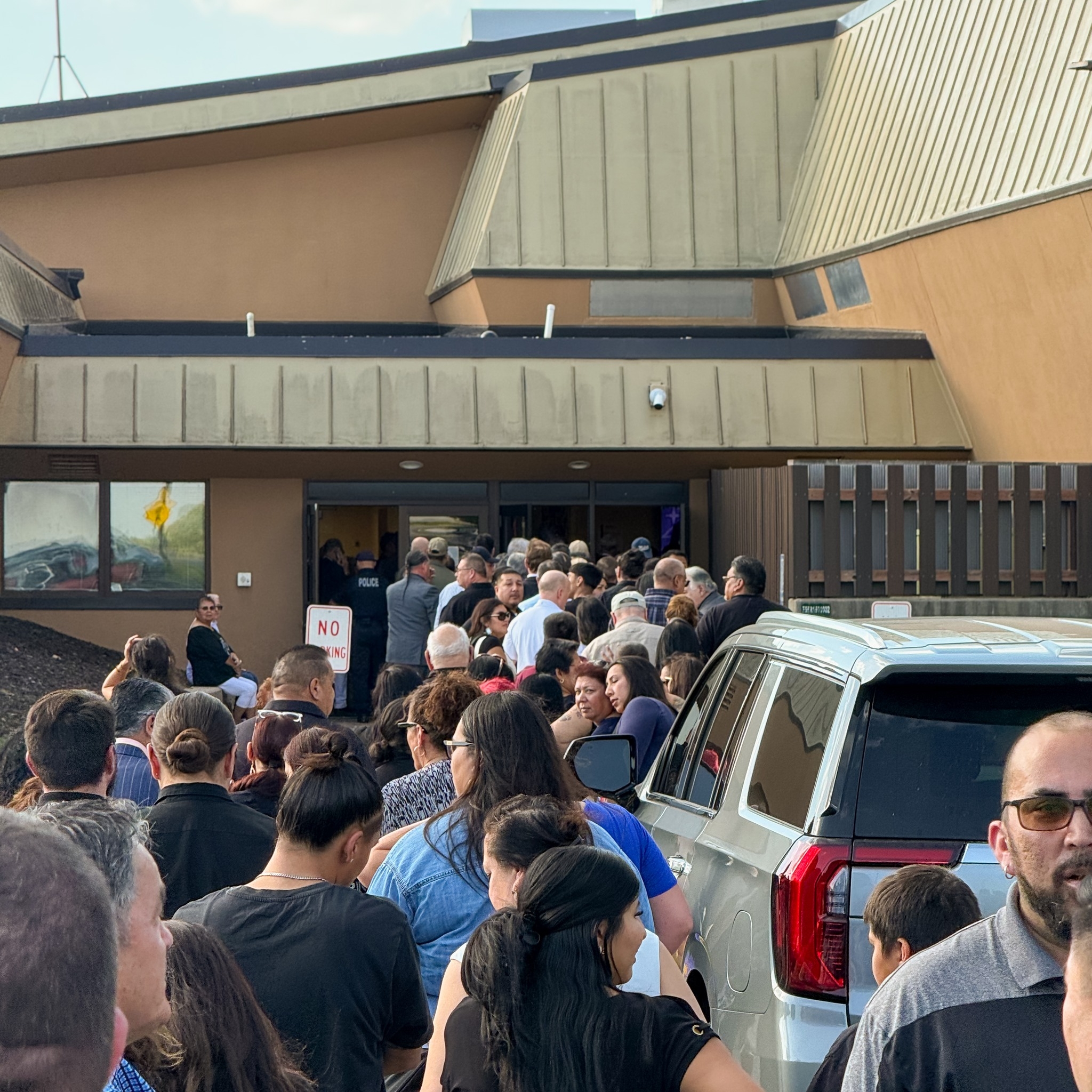
(Courtesy Oneida Nation / Facebook)
Family, friends, and colleagues from across Indian Country gathered Friday and Saturday on the Oneida Nation in Wisconsin, for funeral services to honor Ernie Stevens, Jr., chairman of the Indian Gaming Association.
Stevens is being remembered as a longtime advocate for Indian Country and for making strides in Indian gaming.
During visitation on Friday, which was steamed online, his son Brandon Stevens said his was an amazing tribal leader who fought for Native voices, sovereignty and for future generations. And above everything else, said his father was a family man.
“But to us, to his family, he was more than a leader. He was a man who loved us without hesitation, who protected us, and who always reminded us that family is everything. No matter what we did in our lives, good, bad, or ugly, he looked straight through us and said, ‘You are my children, and I love you no matter what.’”
Stevens died suddenly at age 66 on September 26.
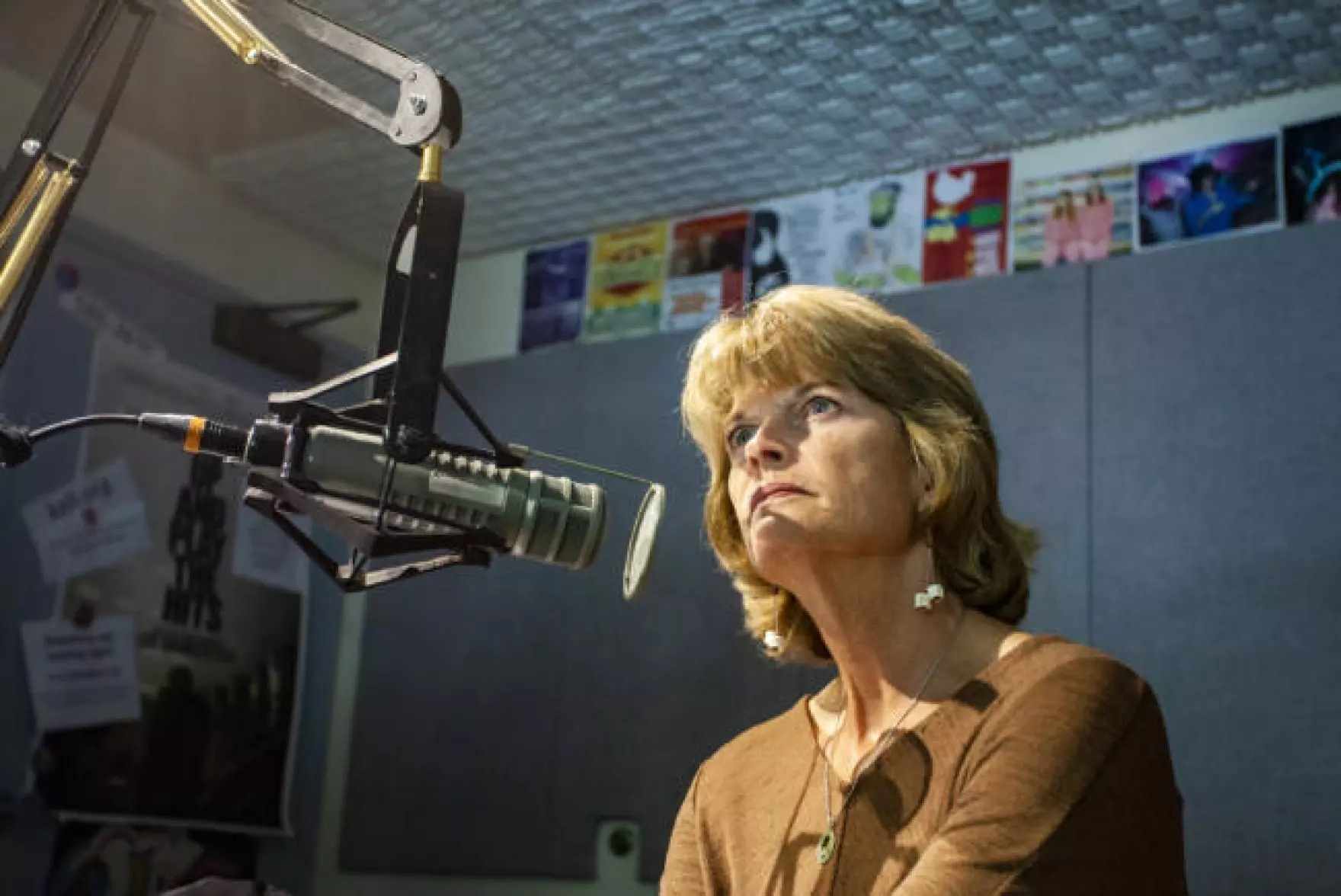
Sen. Lisa Murkowski in a studio at Juneau, Alaska radio station KTOO in 2019. (Photo: Rashah McChesney / KTOO)
U.S. Sen. Lisa Murkowski (R-AK) says temporary federal funding for 14 tribal broadcasting stations in Alaska from the Bureau of Indian Affairs will help keep the lights on, but says the job is not done.
In a recent statement, Sen. Murkowski said the funding will help some of the state’s most rural radio stations make ends meet for now. But it’s one-time funding.
Ten million dollars in BIA existing funding will support Native serving stations in the US.
This follows the rescission by Congress of $1.1 billion for the Corporation for Public Broadcasting.
October first marked the first day public media operated without federal funding.
Get National Native News delivered to your inbox daily. Sign up for our daily newsletter today.
Check out the latest episode of Native America Calling
Monday, October 6, 2025 – Tribal housing advocates work against a tide of obstacles
